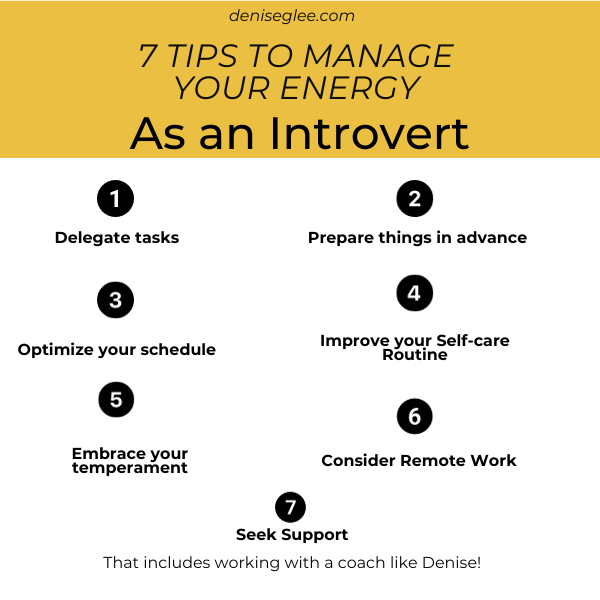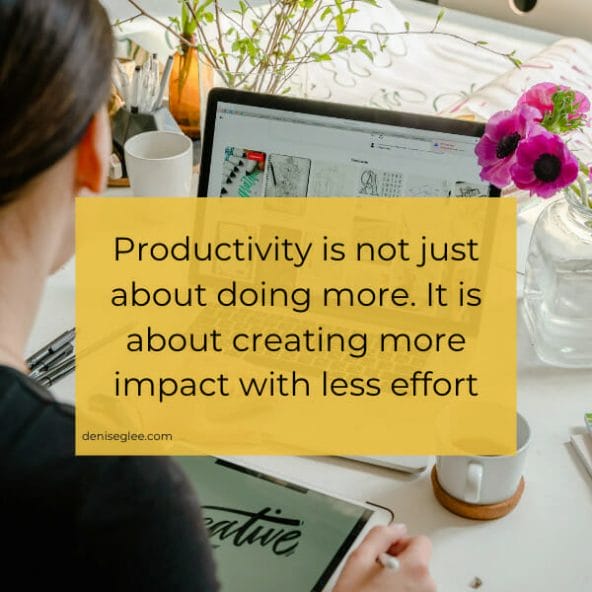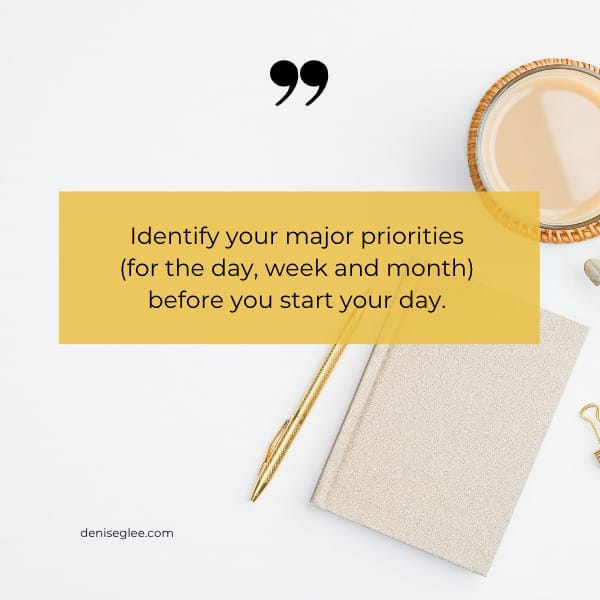
Why Work Drains You—and 7 Energy-Saving Tips for Introverts
- Author: Julia Evans
Although it’s not always easy, in order to sustain a good quality of life in our modern world, the vast majority of us have to work.
Most of the jobs available to us as entrepreneurs involve plenty of interaction with colleagues or the public – and while many will find this a welcome aspect of their work life, it can present somewhat of a challenge for particularly introverted individuals.
In this article, we will discuss 7 ways in which you can manage your workday as an introvert.
What is an introvert?
So, what is an introvert? In general terms, an introvert is someone who thrives and does their best work when they are on their own – as opposed to an extrovert, who functions at their best and feels particularly energized in the company of others.
Being an introvert isn’t necessarily about feeling shy, but more that social interaction can feel draining, while time spent alone has a re-charging effect on your energy levels.
It’s tricky for an introverted personality to avoid social interaction altogether, particularly when it comes to work.
However, there are ways that they can make this part of their career responsibilities feel less stressful and overwhelming. That includes:
- Delegate tasks,
- Prepare things in advance,
- Optimize your schedule,
- Consider remote work,
- Improve your Self-care routine,
- Seek support, and
- Embrace your temperament.
Next, we will discuss each tip in detail.

Delegate tasks
When considering your daily work tasks and responsibilities, you may want to consider which of them can be passed to a colleague, or outsourced if you are a business owner.
Think about which ones require your personal touch, and which don’t necessarily need your attention, and then delegate as necessary.
Ultimately, there is no point in allowing a task to drain your energy if it isn’t absolutely imperative that you complete it.
Perhaps you’ll want to hire a receptionist to take your calls, or have a colleague attend meetings where you don’t need to be physically present yourself.
However you choose to manage your tasks, it’s all about creating some sort of balance. Ideally, you will want to delegate the engagements that are least important for you to attend and save your energy for those calls, meetings, or presentations that you absolutely have to be present.
Make time to prepare
Sometimes you’ll have those big meetings that you just can’t miss, where doing so would perhaps cost you a big client, or a significant amount of money. In situations like these, it’s important to do plenty of prep work before the big event.
While an extrovert might be able to go into an important phone call or meeting a little less prepared, an introvert is likely to find this approach incredibly overwhelming. After all, it takes a whole lot more of an introvert’s energy to simply have the conversation in the first place, let alone be ready to answer any unexpected questions.
How to be prepared?
It’s best to write up any notes that you can beforehand, so that your brain doesn’t have to work as hard during the interaction. This way, you should find that you free up some of your energy, and have a greater capacity to deal with anything unexpected that should crop up.

Optimize your schedule
Perhaps you feel more able to socialize when you first wake up in the morning – this is common for many introverted people who find that they want to get their interactions completed first thing, when they have the most energy.
Or, maybe you simply find it easier to have all your communications grouped together into a single time slot, so that you can get them over and done with in one go.
Take short breaks or spread it thin – it is your choice
You could condense your least favorite tasks into one full day, leaving the rest of the week for alone time – or alternatively, you could choose to spread your communications out and place short breaks between each one, so that you have time to unwind following each interaction.
However you choose to organize your work week, it’s best that you do optimize your schedule wherever you can. Many introverts find that they’re better able to manage their work communications this way, with a timetable that better suits their needs.
Consider remote work
Many introverts find that their work communications are more easily handled from the comfort of their own homes, where they can switch off and have plenty of time alone after they’ve taken a call or attended a meeting.
Usually, this makes for other types of communications easier, too. If you work in-office, you’ll usually have plenty of chats with your colleagues throughout the day, whether you’re collaborating on a piece of work, or having a friendly conversation on your lunch break.
When you work from home, many of your communications will be limited to video calls, instant messaging services and emails, allowing you to skip some of the small talk, and respond according to your own pace.

Focus on self care
While there’s plenty of ways that you can better plan and execute your work tasks, unwinding after the fact is just as important.
After all, when you’re feeling all tired and ‘peopled out’ at the end of a long day, the worst thing you can do is push yourself harder to complete yet another task.
Find activities which bring you relaxation
It’s important to take some time to really look after yourself, and decompress from your work communications each day. This may look like making time to exercise, or spending time in nature.
Perhaps you’ll want to make use of meditation techniques or any other self-care tactic to relax and recharge. This works equally well for de-stressing at the end of the day as it does for quieting your mind in preparation for your work tasks when the day starts.
Ask for support
While you may dread having to schedule a meeting to speak to your colleagues or your employer, doing so may make for a less stressful work life in the long run.
By reaching out and having a conversation with the people you work with, you can let them know about your introverted preferences as well as the importance of spending time alone to produce your best and most productive work. Additionally, consider working with Denise Lee, as she can help you create boundaries within your personal and professional relationships.
Your colleagues or clients are likely to be much more receptive to what you have to say than you expect. After all, their main concern is ensuring that work runs smoothly.
Typically, a client will want to get the best out of their time working together, so any information you provide on how to support you as an introvert will be valuable to them as well.
Embrace your introverted personality type
The worst thing that you can do to manage your communications is to try to change yourself to fit an extroverted way of working.
Despite how it may sometimes feel, introverts bring plenty of coveted skills to the workplace, and have been found to be able to think more deeply and focus for longer periods of time than their extroverted counterparts.
So, above all, while it’s important to make changes here and there so that your work life works better for you, it’s important to remember that your attributes are valuable, and should never be underestimated.
Julia Evans
Julia is passionate about supporting women in business to streamline their productivity and achieve their career goals. Through her own self-development, she has learned to appreciate the intricacies of different personality types, and understand the importance of both introverted and extroverted attributes in the workplace.





